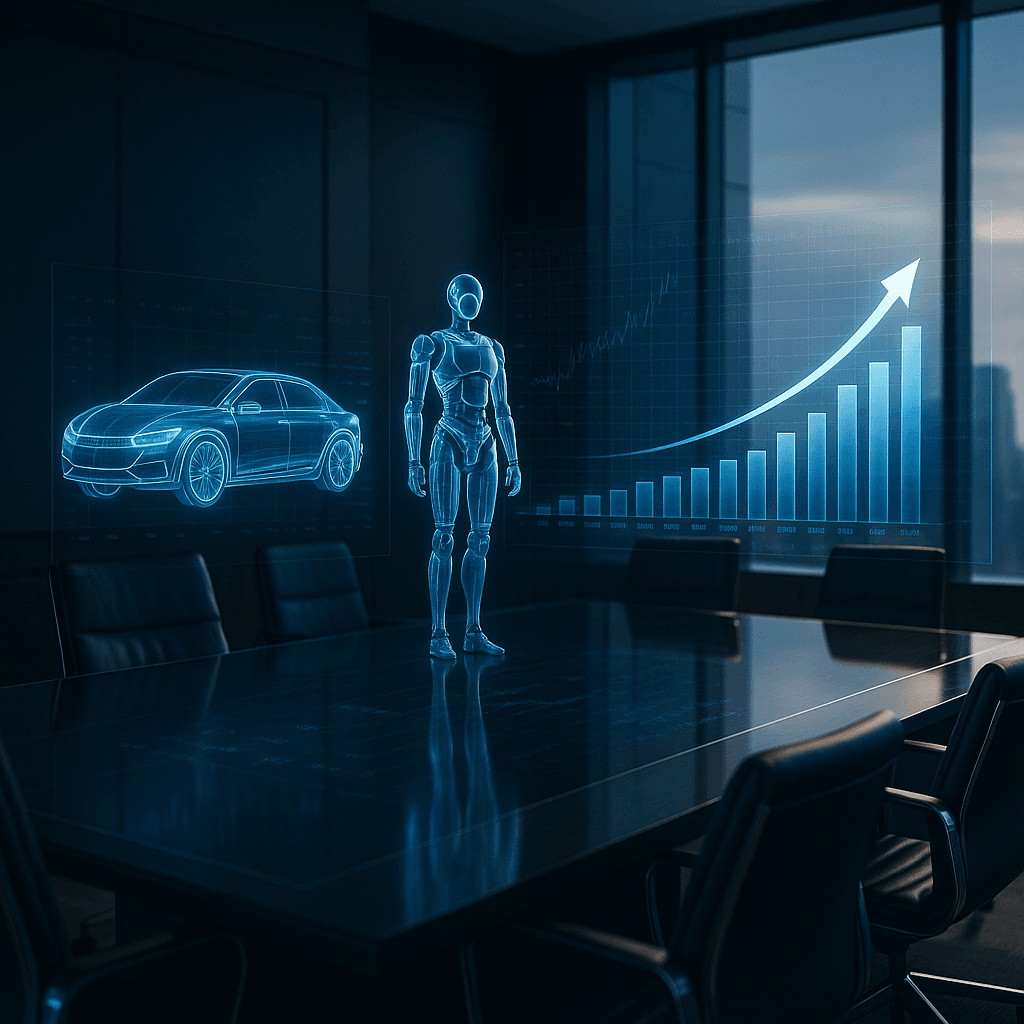Tesla just dropped the boldest corporate bet in history: a $1 trillion pay package for CEO Elon Musk that hinges entirely on turning the company's AI robotics promises into reality. The proposal requires Musk to deliver 1 million commercial robotaxis, 1 million Optimus robots, and propel Tesla to an $8.5 trillion valuation within a decade to earn the full payout.
Tesla just made the most audacious corporate wager in business history. The company's board proposed a $1 trillion compensation package for CEO Elon Musk that transforms him from a distracted political operative back into a focused robotics visionary—or costs him everything.
The proposal, detailed in an SEC filing Thursday evening, sets eight financial milestones and four product targets that would require Musk to revolutionize autonomous vehicles and humanoid robotics within the next decade. To earn the full trillion-dollar payout, Tesla must reach an $8.5 trillion valuation—more than double Nvidia's current market cap and eight times Tesla's present worth.
The timing couldn't be more strategic. Musk's recent years have been consumed by buying and rebranding Twitter, bankrolling Trump's presidential campaign, and launching the Department of Government Efficiency. Meanwhile, Tesla's vehicle deliveries have slumped over 10% across two consecutive quarters as Chinese EV competitors flood global markets.
"For Musk to receive the full pay package, Tesla will need to be the leader of autonomous vehicles and humanoid robots in a number of countries," Seth Goldstein, senior equity analyst at Morningstar, told WIRED. The package goals include delivering 20 million vehicles, securing 10 million Full Self-Driving subscriptions, operating 1 million commercial robotaxis, and shipping 1 million Optimus robots.
But Tesla faces massive execution challenges. The company has delivered just 8 million vehicles since 2008, and internal reports suggest Optimus production has stalled at "a few hundred" units versus the 5,000 target for this year. The humanoid robot program lost its nine-year veteran VP in June, with teams reportedly struggling with basic hand functionality.
Even Tesla's limited robotaxi service launched in Austin this summer relies on in passenger seats—potentially disqualifying those vehicles from the "no human driver" requirement in Musk's compensation milestones.
